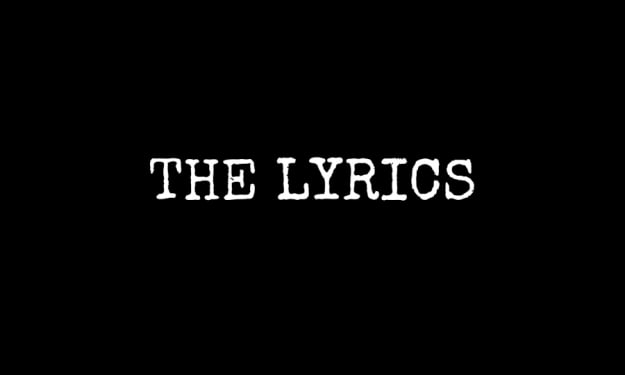Why Study Music?
The benefits of a musical education.

I had music played in my house at most weekends. It was a wide range of music from Bach to Bob Marley with a little Nigerian Highlife thrown in for good measure. But I have never seen or heard my parents play the piano. Ok, my mother, God rest her soul, struggled with the guitar for a short while and my father, at a much later stage triedthe saxophone but the teacher said that he does not have enough "puff" (whatever that meant!).
So, I went with my parents to piano lessons and took my Grade 1 exam. I remember something that I did not experience in the subsequent grades that I took. The examiner handed the report sheet with the marks to me immediately after the exam! (I do not think examiners will get away with it these days!). I progressed through the grades very quickly and got very confident playing in public at a young age - I was very eager to show off my 'talent'. Fast forward a few years, I sat Grade 8 and started to study at the Junior section of one of the musical conservatoires in London.
Fast forwarding a few more years, I ended up studying Engineering at University, tried a few jobs out which didn't work out and ended up as a Maths and Physics lecturer in two London FE colleges.
Now, whilst I was at school, I wanted to be a full-time musician whether it is being a concert pianist or cathedral organist. Logically, I wanted to pursue a music degree or some sort. There were a number of adult "naysayers" saying to me that 'a music degree is useless as there are not many jobs it could lead to' or 'it's soooo hard to make a career out of music'.
I have got to admit, I did listen to the 'naysayers' and took some of these on board. But, I did some research myself though. Whilst at the Junior Department of this London conservatoire, there were fellow students who were much better piano players than me that did not manage to get into the Senior department or any other of the conservatoires in the country. So I said "what hope is there for me?" This prompted me to look at, dare I say it, more "logical" options.
The purpose of this is not to give you my life story but it is to give you some insight into a part of the education infrastructure in the UK which is under threat. The current Conservative government keeps cutting funding for music education making it not accessible to everyone apart from those who could afford it. The reasons why is because they want to increase the standard of Maths and English. Yes. Math is important even though it is still fashionable in the UK to be bad at math. English is important for more obvious reasons. One can extract the importance of every subject taught at school, primary or secondary. I do not see Sport and PE 'kicked to the kerb'. So why music? I know that the music industry is significantly large in this country if we just consider 'pop music', but why cut the funding? I know a mother of a music teacher who used to teach in one of my local secondary schools. Due to funding cuts, they slashed her music teaching by about 70% and made her teach science (which is way out of her skillset!). I said that it is crazy! So, here is my opinion in regards to the benefits of a musical education.
It teaches you how to work under pressure.
I am a member of a Facebook group for pianists and the number of teachers that complain that their students are canceling lessons because of GCSE exams is pretty high. Quite understandable, you might say because they need their Maths GCSE, they need their English GCSE.
When I was sixteen, piano lessons did not stop because I had exams. In fact, I was practicing for a piano competition in tandem with my GCSE exams AND managed to get to the final! In addition, when your teacher gives you a piece to learn, he or she sometimes expect it to be at least note-perfect (not fully perfect) by the next week.
Therefore you have to plan your homework, the chores your mum gets you to do, extra-curricular activities with practice time which is no mean feat. Finally, there will come a time where you have to perform the piece or pieces that you have learnt to an audience. Therefore the pressure can be enormous - especially in a competition.
It teaches you teamwork.
As a solo classical pianist, I have not played in many bands apart from the church worship band. Even with my limited experience with this, communication with one another is paramount as you have to collectively agree how the song or piece is going to be performed e.g. who's playing a solo and at which point or bar (a bar is a measure for those who are living in the US). A string quartet has to develop similar skills.
It teaches discipline.
To be proficient at your instrument you have to practice it. Now, this word "practice" can me interpreted in many different ways to different people. To a non-musician, practice may just mean playing. IT IS NOT! It consists of a lot of things that the musician has to do. Play scales (yes, scales are important), technical exercises (I know, this is where some piano teachers start to say they are a waste of time - another article in itself!), practicing a difficult bar or passage a number of times until they cannot get it wrong, exercises around the pieces they are learning, practicing how to sight-read and a whole heap of things.
As a schoolboy, I used to allow 1.5 hours a day for practice. Now that I have a young family, I have to structure my practice time even more because of my time demands. When I get the opportunity, I get my pencil and start marking the scores with fingerings and what I would like to achieve for the session. In other words, I'm setting myself a SMART target because my time on the piano is not protected due to demands from my wife, my kids and other factors of life which I did not have to worry about as a schoolboy. So that when I get an opportunity to perform the pieces, I try not to make a mistake.
I always say to my students in college that "In a written exam, you can cross out your mistakes but you cannot improve on the wrong note you have played or sung".
It teaches you time-management skills and perseverance.
I have mentioned something relating to time-management skills previously in regards to learning pieces and effectively using your practice time. As my ex-teacher said, "Practice time is thinking time, not playing time." But I will say one thing about perseverance.
It angers me when I hear adults say that they used to play the (insert instrument here) but they gave up when they were in their teens. I wonder "what made them give up?" I imagine that the teacher made them practices scales and they found it boring, their parents sent them to music lessons, the demands of schoolwork, the opposite-sex, and other reasons.
The thing about learning a musical instrument is this. Music is appreciated by most people in the world whether it is rock, hip-hop, rap, house, jazz, RnB, classical and other genres. If you have persisted in learning the instrument so that you can play to a basic standard, you will be more satisfied than if you didn't. I am telling you by experience.
When I was 18, I stopped practicing regularly due to a different career path I have chosen for myself. But I still play the organ in the church and the piano in the church band. Only fairly recently, I bought a piano and started practicing repertoire I didn't know existed when I was a child. Even though I am not (yet) the standard that I was and my fingers are a little stiffer (a bit of Hanon does the trick!), I can still impress my workmates!
The skills which I have mentioned and explained as useful employable skills which most non-musical employees are looking for. Apparently, these skills tend to be less developed amongst graduates from the more scientific disciplines (like Computing, IT and Engineering).
The list of the benefits of a musical education that I have listed are not all and I am sure they are other scientific benefits which, I feel, is too complicated for this post but I would just like to say these things.
- If your son, daughter, niece or nephew is a talented musician or artist, let them pursue that path and don't push them down the route that seems more logical because it may give them a better chance of finding a job afterward.
- If you have learnt a musical instrument and have given up, if you want to take it up again, DO IT and find the time to practice even if it annoys the hell out of those living with you!
About the Creator
Gregory Eze
Writer, Musician, Maths tutor. I have different hats which I have developed recently. I believe that nobody should just settle. Keep on trying new things.






Comments
There are no comments for this story
Be the first to respond and start the conversation.